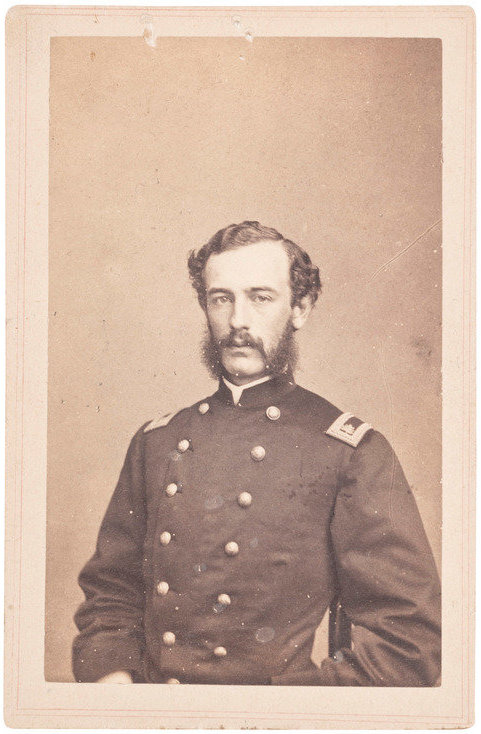Emma Lent and the rumseller (1886)
13 June 2022
Private James W Lent was about 20 years old when he was wounded at Antietam on 17 September 1862. He continued in service with the 7th Maine and later the First Maine Veteran Infantry to muster-out in June 1865.
I’ve found very little more about him, but this news clip from the Portland Daily Press of 30 March 1886 [online from the Digital Maine Repository] hints at his post-war story:
________
My transcription
Emma J Lent of Manchester [ME], has commenced an action against a rumseller of that town to recover $2000 for selling liquor to her husband.
Pvt Thomas Pearson, Hawkins’ Zouaves (c. 1861)
12 June 2022
This photograph of Thomas Pearson, mortally wounded at Antietam, comes from the amazing collection of Civil War Biographies compiled by volunteers on behalf of the Green-Wood Cemetery in Brooklyn, NY.
Maj James L Van Buren (1862)
8 June 2022
This fine carte-de-visite (CDV) has just been offered for sale by Hindman Auctions. It’s of Major James Lyman Van Buren, and accompanies his saber and belt, insignia, and other photographs, all from the Collection of Bruce B. Hermann.
The Major was on General Burnside’s staff at Antietam and had distinguished staff service through the war, ending at the brevet rank of Brigadier General of Volunteers. He died soon after mustering out in 1866 of a bacterial infection of his liver, just 28 years old. He was a cousin of President Martin Van Buren.



